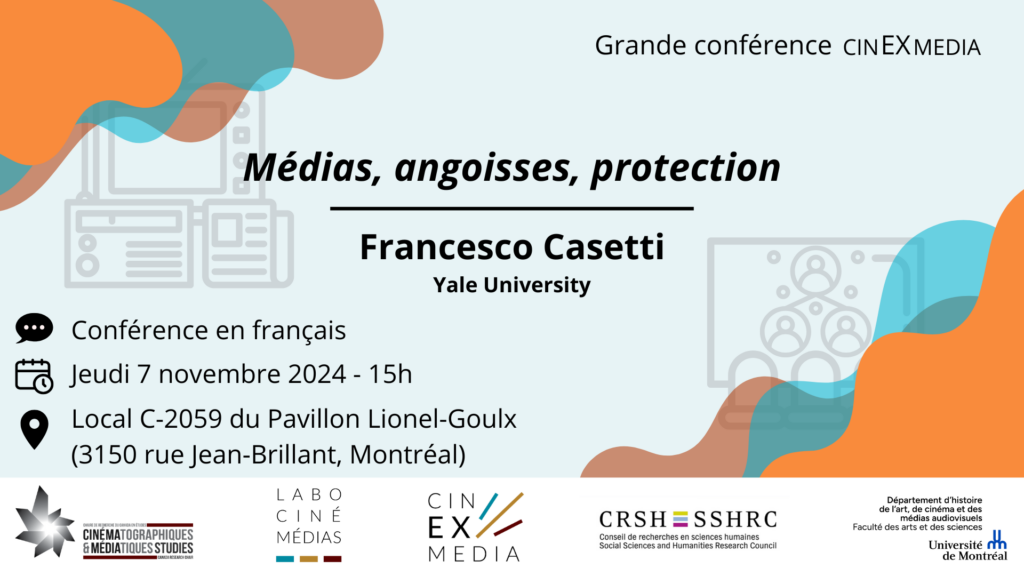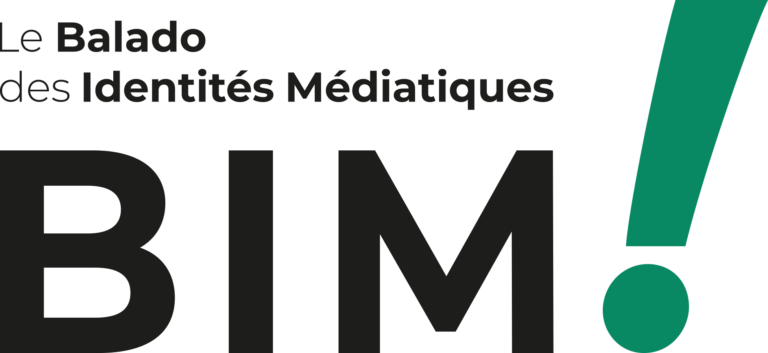
The cinEXmedia partnership team is pleased to invite you to the next Grande Conférence cinEXmedia (cinEXmedia Distinguished Speaker Series), which will take place on the 7th of November at the Université de Montréal. For this second lecture we have the honour of welcoming Francesco Casetti, Sterling Professor of Humanities and Film and Media Studies at Yale.
Francesco Casetti has previously taught in Italy where he served as President of the scholarly society of Film and Media Studies. Visiting professor at Paris 3 La Sorbonne Nouvelle, at the University of Iowa, and at Harvard; fellowships at the Otago University, at the Bauhaus University-Weimar, and at Freie Universtität Berlin; awarded with the "Chair of Italian Culture" for a distinguished scholar at Berkeley. Among his books there are Inside the Gaze; Theories of Cinema, 1945-1995; Eye of the Century: Film, Experience, Modernity; The Lumière Galaxy. Seven Key Words for the Cinema to Come; and Screening Fears. On Protective Media. His current research focuses on the early film theories, with a particular regard for the cinephobic stances in the first half of the 20th Century; and on a genealogy of screen that underlines its environmental aspects and its propensity to become a component of our current “mediascapes.” Francesco Casetti is also a member of our partnership.
The lecture will be in French but it will be possible to ask questions in English. The schedule is as follows:
- Media, Anxieties, Protection — November 7th, 2024, 3:00 PM
- Espace Gérard-Boismenu (C-2059)
- Lionel-Groulx Pavillon, Université de Montréal
- 3150 rue Jean Brillant, Montréal, H3T 1N8
Conference Abstract :
In Beyond the Pleasure Principle, Sigmund Freud claims that “Protection against stimuli is an almost more important function for the living organism than reception of stimuli.” We can apply the same sentence to many of the contemporary media: indeed, they increasingly function as filters that defend us against the apparent threats and dangers from the exterior, rather than as free receptacle of external data, or, worse, as aggressive tools to appropriate the world. Think not only of the surveillance cameras that limit entry into a building to outsiders, the checkpoints that prevent the introduction of hazardous objects into an airport and onto a plane, the plastic partitions that keep germs from spreading in public spaces during pandemics, but also television, with its capacity to deliver news from a turbulent world into a domestic space, and communication platforms like Zoom and Webex, which allow users to stay in touch while avoiding potentially dangerous physical contact. Each of these media build a sort of “bubble” in which individuals find a safe harbor from which better manage reality. Consequently, mediation is no longer an “extension of man,” as Marshall McLuhan puts it, but seems to be a more complex process, in which contact with the world relies on some kind of distancing, and in which grasping reality also means recognizing the threats it may pose – threats that are, more often than not, the result of human action on the world.
The talk explores the widespread presence of protective media in our contemporary media landscape and analyzes both their effectiveness and their ideological implications.
For those unable to attend, the two lectures will be recorded and posted at a later date on the Laboratoire CinéMédias website.

